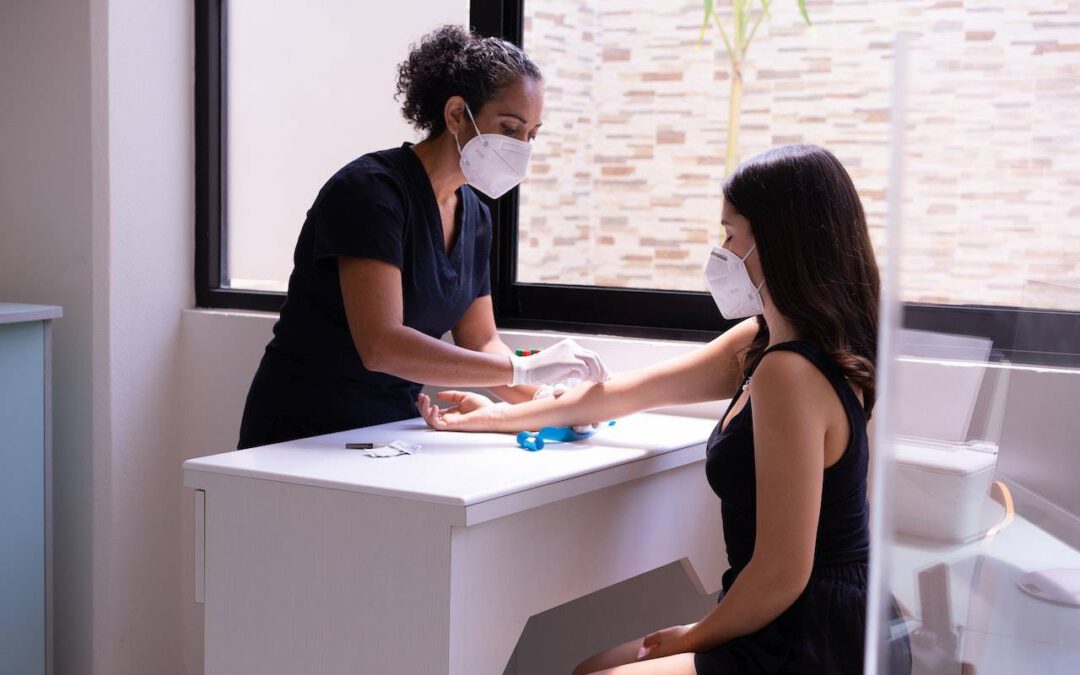Blood tests are vital for diagnosing and managing many diseases and conditions. They can help doctors detect problems early when they may be more easily treatable. Blood tests can also be used to monitor conditions, such as diabetes, and to check for side effects of medications.
The complete blood count test measures the number of red blood cells, white blood cells, and platelets in the blood. This information can be used to detect a wide variety of conditions, including anemia, infection, and leukemia.
Another standard blood test is the basic metabolic panel (BMP). This test measures glucose, sodium, potassium, chloride, and carbon dioxide levels in the blood. It can be used to detect diabetes, kidney disease, and dehydration.
Blood test services can also measure levels of enzymes, hormones, and other substances in the blood. These tests can diagnose various conditions, including thyroid disease, liver disease, and certain types of cancer. In short, blood tests are an essential tool in diagnosing and treating many conditions.
What Happens During a Blood Test?
You may have had blood tests before, but do you know what happens when you have blood test services? Here is a look at what happens when you have one, from when you arrive to when you leave.
The medical personnel will ask you to fill out a form when you arrive for a blood test. You will be taken to a private room where a phlebotomist will clean your arm with an antiseptic and insert a needle into a vein. The phlebotomist will then draw blood into a tube, which will be sent to a lab for testing.
After your blood is drawn, you must apply pressure to the needle’s insertion area. If necessary, you will be given your results and asked to make an appointment for a follow-up visit.
Do I Need to Prepare for This?
You do not need any special preparations for most blood tests. However, there are a few exceptions. For example, if you have a fasting blood test, you must fast for eight hours before your appointment.
To prepare for a lipid panel, you must fast for 12 hours. It means you cannot eat or drink anything during this time except for water. If you also have a glucose tolerance test, you must fast for at least 8 hours and drink a sugary drink before your appointment.
Blood tests are a routine part of most doctor’s visits. They can help diagnose various conditions, from anemia to diabetes. Blood tests are quick, painless, and generally pose no risks.
Are There Risks?
The risks of blood tests are usually minor, such as bruising or feeling faint. However, some rare but serious risks exist, such as infection or allergic reactions. Before you have one, talk to your physician about the risks and benefits of blood tests.
One of the most common risks associated with blood tests is bruising. It usually occurs when the needle is inserted and is more likely if you have sensitive skin. If you experience bruising, it will usually resolve within a few days.
Another risk associated with blood tests is bleeding. It can happen if the needle punctures a blood vessel and is more likely to occur if you have a bleeding disorder. If you experience bleeding, it will usually stop within a few minutes. However, if it does not, you may need to seek medical attention.
Conclusion
Other than the things enumerated earlier, there are a few more things you should know about blood testing services before you make an appointment:
- You should know what kind of test you need.
- You should ask your doctor if your insurance covers the test.
- You should make sure you have a way to get to and from the appointment.
On your next annual exam, you should go to Family Medicine and Wellness for our blood testing services. We are a one-stop medical facility that will take care of your needs. So, schedule your appointment now!



Recent Comments